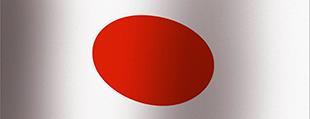Become a tycoon of English with Tim Bowen’s guide to English words from the Japanese language.

Emoji is not actually a word but an ideogram used in text messaging and is one of numerous terms used in English that have their origins in Japanese.
The largest concentration of words in English of Japanese origin is probably in the field of food and drink, where terms such as sushi, sashimi, satsuma, tempura, shiitake and wasabi will be familiar to many.
The sport of karate (literally ‘empty hand’) also originates in Japan as does the rather less sporty activity of karaoke (literally ‘empty orchestra’).
First appearing in The Times newspaper in the UK around 2004, sudoku puzzles are now a feature of newspapers and puzzle books worldwide, the name deriving from an abbreviation of a Japanese phrase meaning more or less ‘the numbers must occur only once’.
Your flat or house may contain futons (based on a Japanese style of bedding) and you may decorate your living quarters with bonsai trees (literally ‘tray gardening’) or examples of origami (artistic paper folding).
Other words of Japanese origin that are used in English include tycoon (originally meaning ‘great commander’), kimono (a long robe-like garment), manga (Japanese comic books), shiatsu (a type of massage) and, coming to public attention largely due to the tragic events of 2004, tsunami (literally ‘harbour wave’).
Teaching tip: ask learners to use a search engine to find out what these types of Japanese food are: fugu (and why it could be dangerous), miso, matsutake, bento and arame.



No comments yet